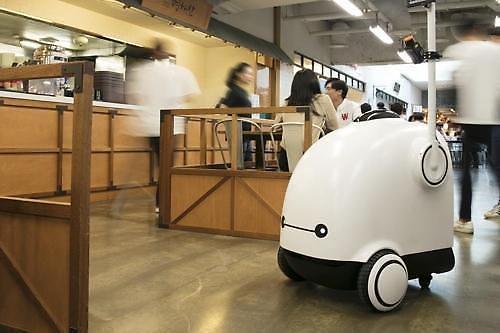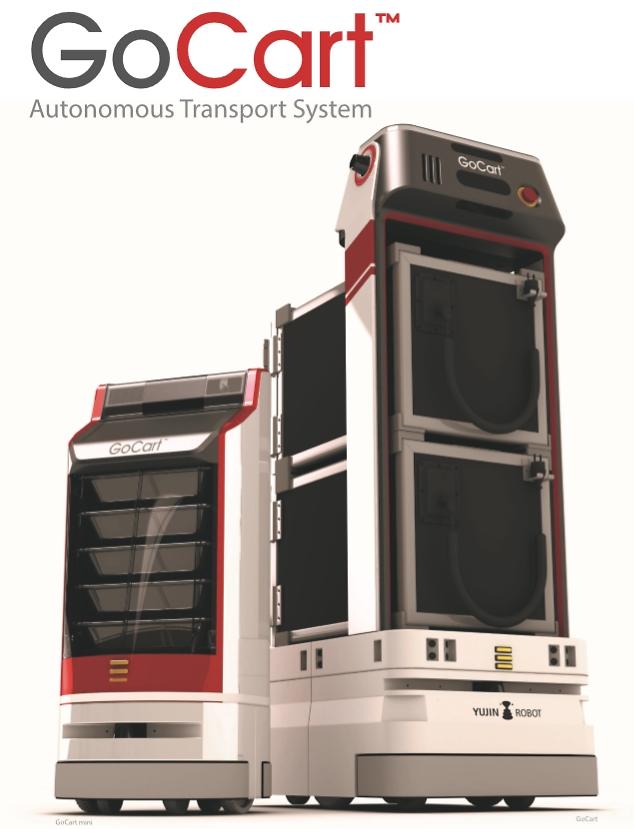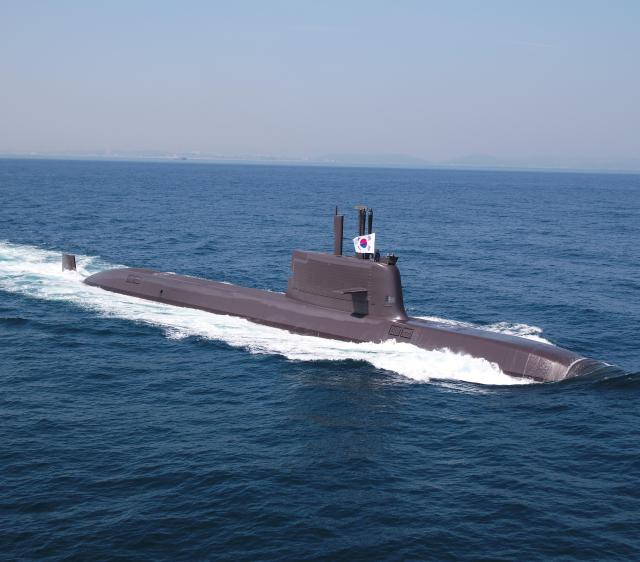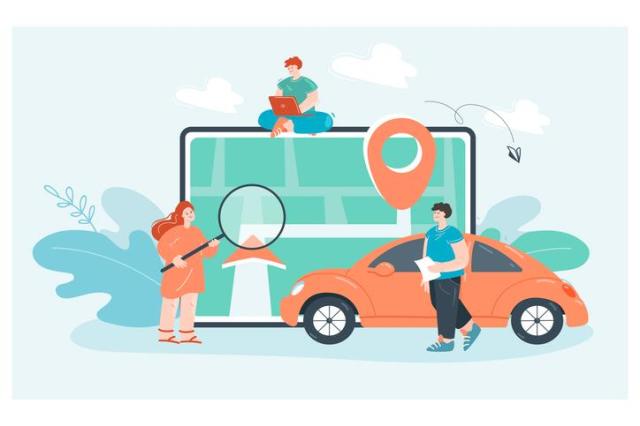
[Courtesy of Baedal Minjok]
SEOUL -- In a bid to cement its leadership in South Korea's saturated delivery service market supported by some 200,000 workers, Baedal Minjok forged a partnership with Hyundai Movex, an automated logistics system provider, to develop autonomous delivery robots capable of moving between floors.
Through a memorandum of understanding signed on Tuesday, Woowa Brothers, the operator of Baedal Minjok, and Hyundai Movex will jointly develop technologies related to autonomous delivery robots, an interworking platform for elevators and robots and the establishment of test environments.
Woowa Brothers has developed autonomous robots for restaurants and self-driving food delivery vehicles. It's final goal is to produce robots capable of roaming freely through the crowded urban streets to deliver food from restaurants to customers. It tested a food service robot at a food court in the central city of Cheonan and a Pizza Hut store in Seoul this year.
While service robots have skillfully carried out their given tasks, the development of delivery robots was slow because they are not useful in real life in a country where many city dwellers live in high-rise apartment buildings. The salient challenge is elevators. So the two companies aim to commercialize autonomous robots which can travel smoothly between floors in the second half of 2019.
Hyundai Movex's business manager Kang Tae-gyu said the delivery robots should pick up food from a delivery worker at a designated place inside an apartment complex and navigate to its destination using wireless communication and internet of things (IoT) networks.
"The robots will use 4G mobile networks and IoT networks to communicate with servers and elevators," he told Aju News Tuesday, adding they would be compatible with the elevators produced by Hyundai Elevator, which controls nearly half of South Korea's elevator market.
Compared to competitors, the robots to be developed by Hyundai Movex and Woowa Brothers will be easily connected to Hyundai elevators at small costs, Kang said. "The setup process is very simple. An elevator system can communicate with delivery robots just by adding a module and a gateway server."
A test run has been carried out at Hyundai Elevator's research lab in Icheon some 50 kilometers (31 miles) southeast of Seoul earlier this month. "The robot successfully delivered food to a target area in the 52nd floor of a test building, moving from the first floor using multiple elevators," Kang said.
Using the same communication infrastructure for delivery robots, Hyundai Movex aims to develop security robots at apartment complexes at night. "Residents mainly welcome the adoption of delivery robots but some people oppose test runs," Kang said, adding landlords are uncertain about the safety of robots.
The adoption of delivery robots is expected to gain speed, the Hyundai Movex manager said, citing the emergence of smart cities where devices and equipment are connected by IoT device networks and super-fast wireless networks being established in new towns.

Yujin Robot's Gocart service robot[Courtesy of Yujin Robot]
Service robots are in limited operation at some restaurants, hospitals and hotels. Yujin Robot, a South Korean industrial and commercial robot maker, has partially commercialized its robot service at hospitals and elderly care facilities.
"We have robots working at hospitals delivering pills and meals to patients," Yujin Robot's public relations manager Jang Yuna said. She said the robot's system can be easily modified and adopted by logistics warehouses and other facilities such as hotels. "By using our robot service, staff can spend more time with patients to provide better care instead of moving meals and dirty dishes."
Major South Korean technology companies have also jumped into the autonomous service robot market. Earlier this year, Hyundai Heavy Industries Holdings partnered with Naver Labs, an AI-developing wing of the country's largest web portal Naver, to develop service robots capable of creating 3D maps and provide directions to people.
LG CNS, an information technology wing of South Korea's LG Group, released a management platform for service robots in July. The platform connects service robots working at airports, shopping malls or logistics centers. According to Markets and Markets, an American market research company, the global service robot market would grow fast to reach $23.9 billion by 2022.


![[INTERVIEW] Creating robots designed to free people from work](https://image.ajunews.com/content/image/2024/04/08/20240408111400614492.jpg)

